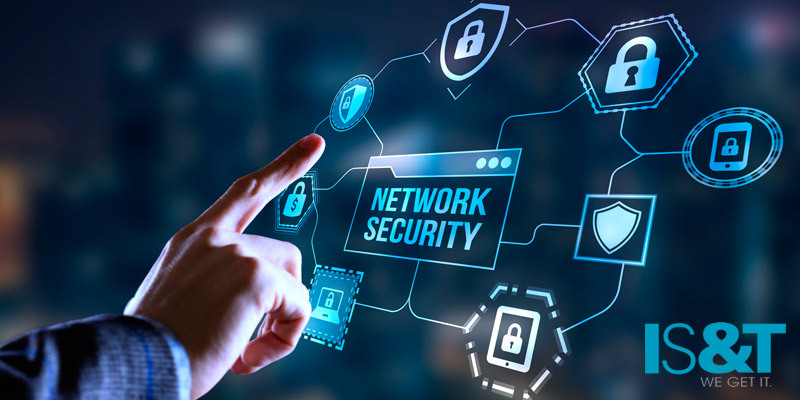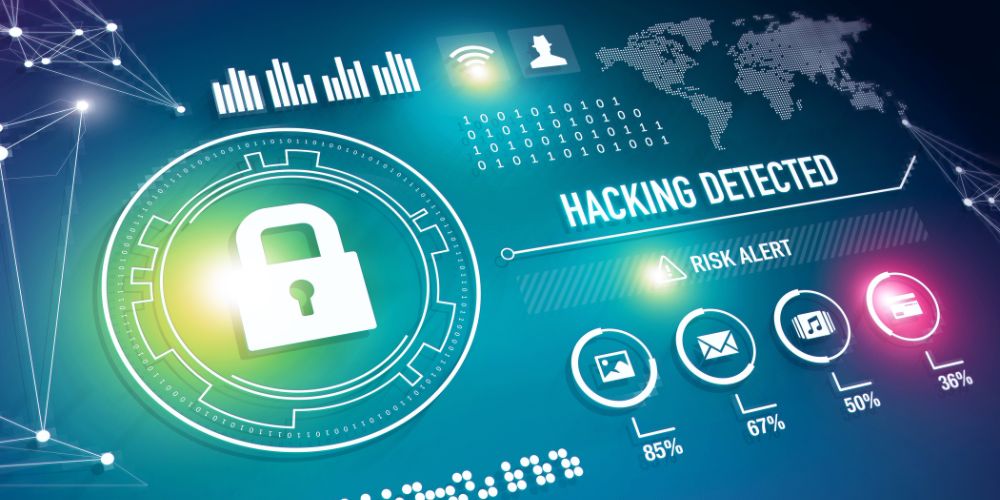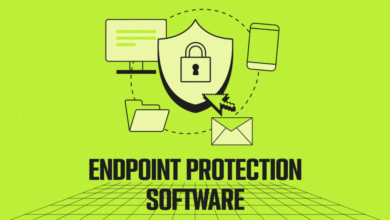Network Security Solutions: Protecting Your Business in 2025

In today’s digital age, businesses rely on interconnected networks to operate efficiently. However, as organizations continue to embrace digital transformation, the risk of cyber threats also increases. Network security solutions play a crucial role in safeguarding business data, preventing unauthorized access, and ensuring that systems remain secure from cyberattacks. In this article, we will explore the importance of network security solutions, their key components, and how businesses can implement them to protect their infrastructure in 2025.
What Are Network Security Solutions?
Network security solutions are a set of tools, strategies, and technologies designed to protect a company’s network infrastructure from unauthorized access, data breaches, and cyberattacks. These solutions ensure the confidentiality, integrity, and availability of data by preventing potential threats from compromising the network. A robust network security strategy involves several layers of protection to safeguard against both external and internal threats.
- Why Are Network Security Solutions Important?
Network security is essential for protecting business-critical data and ensuring the smooth operation of network systems. Cyberattacks, such as hacking, phishing, and ransomware, can cause significant damage to businesses, leading to financial loss, data theft, and reputational harm. Effective network security solutions help mitigate these risks and provide businesses with peace of mind. - How Network Security Solutions Work
Network security solutions work by monitoring network traffic, detecting potential threats, and applying security measures to block unauthorized access. These solutions can range from firewalls and encryption tools to advanced intrusion detection systems (IDS) and intrusion prevention systems (IPS). They operate continuously to ensure that the network remains secure.

Key Components of Network Security Solutions
- Firewalls
Firewalls act as the first line of defense against external threats by filtering incoming and outgoing traffic based on pre-defined security rules. A properly configured firewall blocks malicious traffic while allowing legitimate communication to pass through. Businesses can use hardware or software firewalls, or a combination of both, depending on their needs. - Intrusion Detection Systems (IDS)
IDS monitor network traffic for suspicious activity and potential threats. They detect anomalies and alert administrators to possible intrusions or attacks. While IDS systems cannot block attacks, they play a critical role in identifying and responding to security breaches in real time. - Intrusion Prevention Systems (IPS)
IPS go a step further than IDS by actively preventing threats. These systems monitor network traffic and automatically block any malicious attempts to infiltrate the network. IPS solutions can detect and mitigate known attack signatures, making them essential for preventing data breaches and cyberattacks. - Virtual Private Networks (VPNs)
VPNs provide secure, encrypted communication channels for remote employees to access the company’s internal network. By using a VPN, businesses can ensure that their remote workforce connects securely to the network, protecting sensitive data from hackers and other cybercriminals. - Antivirus and Anti-malware Software
Antivirus and anti-malware software protect systems from malicious programs such as viruses, worms, and ransomware. These tools scan files and network traffic for harmful code and block any threats before they can cause damage. Regularly updating antivirus software is critical for keeping networks protected against new malware threats. - Data Encryption
Encryption is essential for protecting data in transit and at rest. By encrypting sensitive data, businesses can ensure that even if it is intercepted by unauthorized individuals, it remains unreadable. Encryption solutions are particularly important for industries that deal with sensitive information, such as healthcare, finance, and e-commerce. - Network Access Control (NAC)
NAC solutions restrict access to the network based on user authentication and device compliance. These systems ensure that only authorized devices and users can access the network, reducing the risk of internal threats and unauthorized access. - Multi-Factor Authentication (MFA)
MFA adds an additional layer of security by requiring users to authenticate using multiple methods, such as passwords, biometric data, or security tokens. Implementing MFA significantly reduces the risk of unauthorized access to network resources, even if login credentials are compromised.
Benefits of Network Security Solutions
- Protection Against Cyberattacks
Network security solutions provide businesses with a strong defense against cyberattacks, including hacking, malware, and ransomware. By detecting and blocking threats before they can infiltrate the network, businesses can minimize the risk of data breaches and financial loss. - Enhanced Data Integrity
With encryption and access control measures in place, businesses can ensure the integrity of their data. Network security solutions help prevent unauthorized modifications, ensuring that critical data remains accurate and reliable. - Improved Compliance
Many industries are subject to regulatory requirements related to data security and privacy, such as GDPR, HIPAA, and PCI DSS. Network security solutions help businesses maintain compliance with these regulations by implementing the necessary safeguards to protect sensitive information. - Reduced Operational Downtime
A successful cyberattack can result in significant downtime, disrupting business operations and causing financial losses. Network security solutions help reduce the likelihood of attacks and minimize the impact of any breaches, ensuring that businesses can continue operations without major interruptions. - Scalability and Flexibility
As businesses grow, their network security needs evolve. Network security solutions can scale to accommodate increased traffic, new devices, and additional users. Businesses can customize their security infrastructure to meet their specific needs and ensure they remain protected as they expand.
Also Read: Cybersecurity Best Practices: Safeguarding Your Business in 2025

Challenges in Implementing Network Security Solutions
- Complexity and Cost
Implementing comprehensive network security solutions can be complex and expensive. Businesses need to evaluate their specific needs and budget constraints to determine the best combination of security tools. However, the cost of a cyberattack is often much higher than the investment in network security. - Integration with Existing Systems
Integrating network security solutions with existing infrastructure can pose challenges, especially for businesses with legacy systems. Ensuring compatibility between new security measures and older systems requires careful planning and testing. - Ongoing Maintenance and Monitoring
Network security is an ongoing process that requires regular maintenance, updates, and monitoring. Businesses need to allocate resources to continuously monitor network traffic, apply security patches, and respond to potential threats.
Conclusion: Securing Your Business with Network Security Solutions
Network security solutions are a critical component of any business’s cybersecurity strategy. In 2025, businesses must take proactive steps to protect their networks from evolving cyber threats. By implementing a multi-layered approach to network security, businesses can defend against cyberattacks, protect sensitive data, and ensure business continuity. While challenges exist, the benefits of robust network security far outweigh the risks. A secure network is the foundation of a secure business.





One Comment